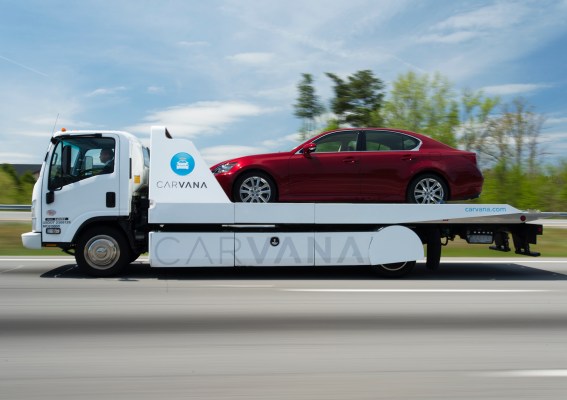Used car sales are heating up online, with huge amounts of cash pouring into an industry that has yet to be disrupted by technology. A company called Carvana is in the process of raising a huge round of growth funding as it seeks to improve the process and reduce the price of buying a used car online.
More and more consumers are getting used to making purchases of big-ticket items online, which is creating a big opportunity for businesses that cut out the middleman and offer products direct-to-users. Carvana is one example of this, by offering a website where customers can quickly browse, search and buy used automobiles online.
Unlike some other used car platforms, Carvana has a vertically integrated business model for buying, reconditioning, and financing auto sales to its customers. Instead of just creating a pure marketplace of buyers and sellers, Carvana purchases pre-owned automobiles direct from consumers, fleets and auctions, and readies them for sale to consumers.
While purchasing vehicles and holding inventory in that way increases the capital costs associated with running the business, it also gives Carvana more control over pricing and availability of its vehicles.
Backed by DriveTime, which has a nationwide network of used car dealerships and service facilities, Carvana has raised $50 million in initial funding. Through the strategic investment, Carvana also gains access to DriveTime’s service facilities, where it fixes up vehicles before making them available for sale.
In addition, Carvana has built its own financing operations, which enables it to more quickly offer loans direct to customers without having to wait for approval from a third-party financing provider. All of that streamlines the sales process, meaning consumers can go through the purchase flow in just minutes.
Customers typically save about $1,500 off Kelly Blue Book prices when purchasing from Carvana, and cars are backed with a 100-day, bumper-to-bumper warranty. The company typically delivers cars direct to consumers within a week of purchase, and they have a seven-day return policy, where customers can give back the vehicles for any reason if they’re not satisfied.
Unlike competitor Beepi, which started in California and has been gradually expanding East, Carvana has focused mostly on making its cars available in areas of the Southeastern United States. With headquarters in Phoenix, Ariz., Carvana has operations and distribution facilities in Atlanta, Dallas, Nashville, Charlotte, N.C., and Birmingham, Ala.
While not quite as visible in the Bay Area tech scene, Carvana has been growing quickly since launching in 2013. The company reached $45 million in gross revenues during its first full year in business, and it has a $120 million projected revenue run rate for 2015.
With those numbers behind it, the company is seeking a big new round of funding, which could be announced in the coming weeks. Sources with knowledge of the situation say the company hopes to bring in $300 million in growth funding to ramp up operations. According to sources, the funding will likely come from both institutional and strategic investors, as Carvana seeks to leverage both capital and connections to make used cars available in more markets around the country.
